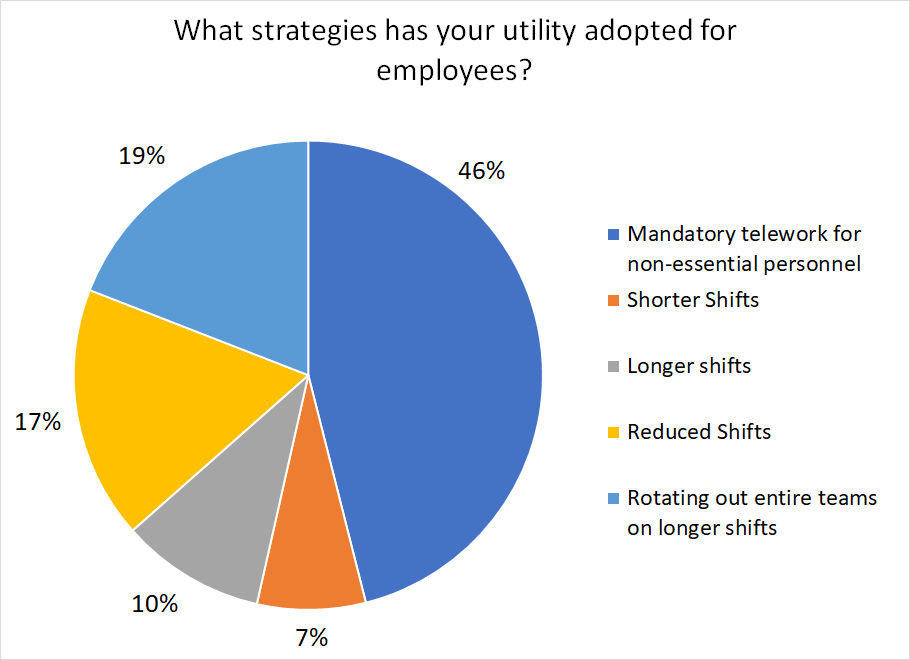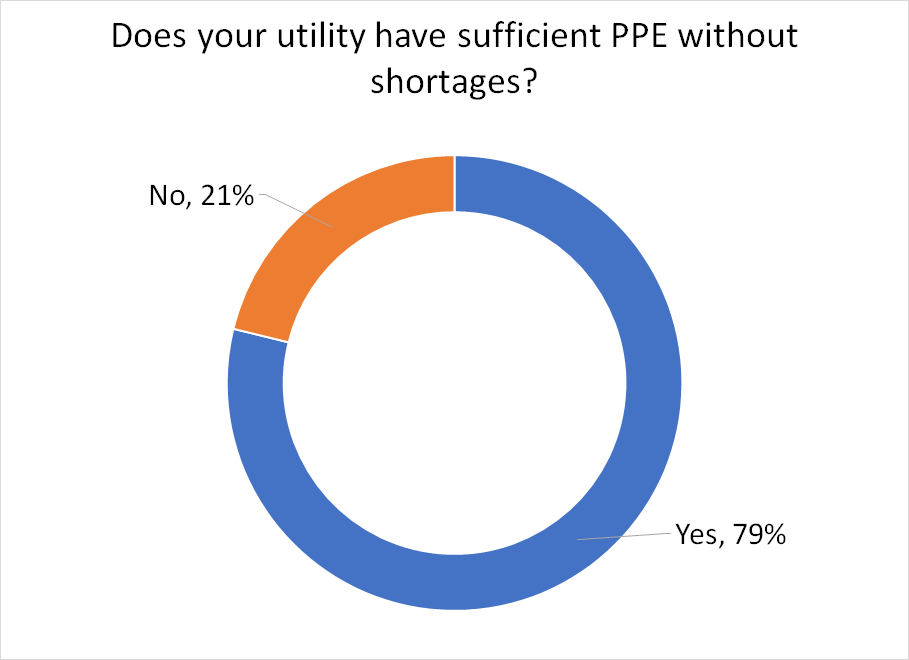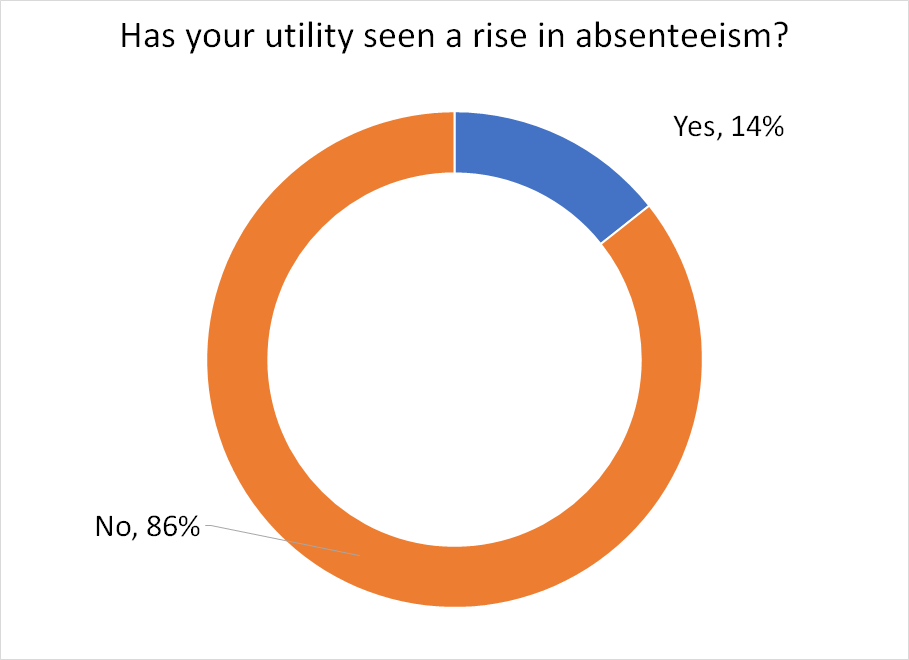View CWEA’s round-up of Coronavirus (COVID-19) worker safety information here >
Throughout CWEA’s three COVID-19 webinars we’ve been surveying wastewater professionals about their experiences during the pandemic.
Here is a summary of their responses.
For the April 15th collection systems webinar, we asked attendees if their agency is experiencing INCREASED maintenance because of wipes? 64% of the 165 agencies represented said yes they are experiencing O&M problems due to more wipes in the system. The responses are an important reminder for the public not to flush wipes.
Another startling finding was 77% of 191 agencies surveyed said they are struggling to find PPE supplies. The most common items those agencies are looking for are face masks, hand sanitizer and gloves.
During the collection systems webinar we asked attendees live if their agency had an emergency plan. 45% said yes they had a plan and they updated it for the pandemic; 8% had a plan; 25% did not have a plan; and 22% of attendees were not sure if their agency had a plan.
One question several attendees asked about was about hazard pay. 71% of attendees responded their agency does not offer hazard pay; 4% do offer it and 25% of attendees were unsure.
For our April 8th O&M meeting we surveyed 32 agencies and found 56% of them would call on a neighboring agency if their staff is taken out of action due to coronavirus exposure. Half of the agencies said they would also reach out to recent retirees to see if they would be willing to come back.
Several also reported they are stopping low priority sampling (23%); construction (37%) and low priority maintenance tasks (40%). One-third of the agencies said they have made no O&M changes due to the coronavirus.

CWEA’s O&M members also asked about and shared unique scheduling strategies implemented to combat the virus.
Some of the more common shift changes mentioned:
Other interesting schedules included an agency who oversees several smaller water and wastewater treatment plants keeping operators only at one facility and not rotating them. If an operator does fall ill, other operators can be transferred from one of the other facilities.
One agency was on split-shift rotation schedules for three weeks, but ultimately decided to go back to their standard work schedules. Part of the reason was budgetary constraints.
Other agencies mentioned they are already starting to reach out to retirees to find who might be willing to come back to the facility in an emergency.
The City of Modesto also shared a helpful, draft emergency staffing plan. Modesto’s managers discussed the plan in CWEA’s April 9th webinar.
WEF administered a quick, informal poll March 23 and 28 to gain some insights into how this situation is affecting the water workforce.
The poll had 222 respondents, with 77% public utilities, 10% consultants, 5% private utilities, 6% other, and 2% technology providers. WEF will continue using informal polls to generate insights about key issues in the water sector, particularly during the coronavirus response.
Utilities and companies expressed tremendous confidence in the ability to continue operations. More than 90% indicated they have adequate staff availability during the coronavirus pandemic. About 14%, however, noted a rise in absenteeism tied to the situation. View the survey on WEF.org >


